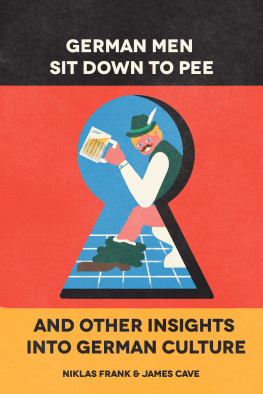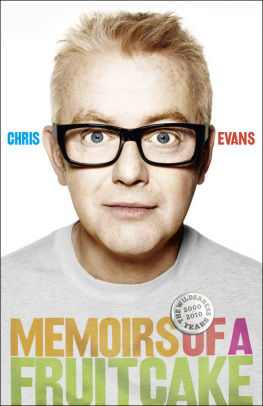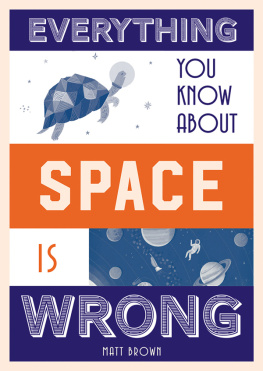Table of Contents
ACKNOWLEDGMENTS
My deep thanks go to my literary agents, Sheree Bykofsky and Janet Rosen; my excellent editor at Perigee, Meg Leder; Perigees summer intern, Brian Sweeney; freelance copyeditor Candace Levy; my colleague Alison Schoew, who gave me some excellent advice; my friends Justin Gruver and Rob Stewart, who helped edit the typescript; and my good friend and extraordinary administrative assistant, known for her superlative word-processing skills, Robin Hudgins.
This book has been enriched by the hard work of many people. I am grateful.
PREFACE
Although most of us know a great deal, much of what we think we know aint so. We all harbor misconceptions that seem to make sense because they have been reinforced by other people who, like us, have accepted popular beliefs. Many misconceptions are accepted not only because they are popular but also because they connect well with what many people consider common sense.
It makes sense to believe, for example, that German chocolate originated in Germany rather than the truth: that German chocolate is so named because it was created by Sam German. Further, it makes sense to believe that Mercury is the hottest planet because of its closeness to the sun, even though the hottest planet is Venus, most of whose atmosphere consists of carbon dioxide, a greenhouse gas. Similarly, it makes sense to believe that buttermilk contains butter and that Danish pastry is from Denmark.
Not one of those beliefs, however, is true.
Although some misconceptions come from misnomers or misleading names, other misconceptions come from believing what appears credible in light of what is known. Indeed, many misconceptions are accepted precisely because they are plausible. For example, the more people know about Thomas Jeffersons political philosophy, the more likely they will believeerroneouslythat he wrote, That government is best which governs least. Those words, however, were not from Jefferson. Although they were quoted without attribution in Thoreaus essay Civil Disobedience, there is dispute over their original authorship.
Some misconceptions are so common that they are embraced by even cartoon characters. For example, in a particularly popular episode of The Simpsons, Bart vs. Australia, Lisa tells Bart that toilets in the Northern Hemisphere (including America) drain counterclockwise, whereas those in the Southern Hemisphere drain clockwise. Lisas confusion stems from misunderstanding the Coriolis Effect, the inertial force that deflects objects moving above the Earthrightward in the Northern Hemisphere and leftward in the Southern Hemisphere (including Australia). Bart Simpson doesnt accept Lisas conclusions, calls up Australians to find the truth about their toilets, and manages to create a diplomatic incident. Factually, it was Lisa, however, who was mistaken. Australian toilets flush in the same direction as toilets in the Northern Hemisphere. Although the Coriolis Effect can and does influence large bodies of water and air masses in the atmosphere, its influence on the direction of tiny quantities of water in a sink or a toilet bowl is negligible compared to the effect of the shape of the receptacles and the direction from which they were filled.
The art of debunking, though useful and enjoyable, requires good judgment. For example, although a tomato is, botanically speaking, a fruit (the ripened reproductive body of a seed plant), in most culinary contexts we treat it as a vegetable. Botanically, a cucumber is also a fruit, yet people who treat it as a vegetable in a salad are not necessarily unenlightened. Because tomatoes and cucumbers can, in some contexts, be treated as vegetables, it would be pedantic and obnoxious to condemn people for believing that tomatoes and cucumbers are vegetables rather than fruits. Debunking should, then, be done with discretion.
Similarly, in astronomical circles, Pluto no longer has the same planetary status it had before 2006, yet the reclassification of Pluto was not a discovery of a new fact but more like a verdict on facts already acknowledged. Schoolchildren who are now taught that Pluto is not a full-fledged planet are not, on that account, necessarily more enlightened than children of previous generations. The upshot is that those who seek to debunk misconceptions need tact, understanding, and, yes, humility. The beliefs of todays debunkers may be overturned tomorrow in the light of new or better evidence or evidence that has been more carefully examined.
Some debunkers, for example, take great pleasure in asserting that the Baby Ruth candy bar was not named after Babe Ruth. That assertion, however, is open to question. Those who make the assertion note that the official position of the Curtiss Candy Company, which produces the bar, has always been that the name of the candy bar has nothing whatever to do with the world-famous baseball player but was named after Ruth Cleveland, President Grover Cleveland s firstborn daughter, who had died of diphtheria in 1904, more than seventeen years before the Baby Ruth candy bar was introduced. Many people, however, including the researchers at Snopes.com, find it curious that a candy bar named Baby Ruth should be named after the long-dead child of a former American president and that it should appear on the market just when Babe Ruth had become the most famous person in America.
Why would the representatives of a candy company concoct a story about the name of an increasingly popular product? Fear of a lawsuit is one possible answer. Because the candy company had not gotten Babe Ruths permission to use what looks like a form of his name, they might have been suedsuccessfullyby Babe Ruth. In fact, Curtiss did have to defend itself against at least one challenge to its name. A competitor, with approval from Babe Ruth, called its candy the Babe Ruth Home Run Bar. Curtiss, asserting that its candy bar was named for Ruth Cleveland, forced the competing bar off the market because its name too closely resembled that of Curtisss own product. In short, there is reason to think that the Baby Ruth candy bar was named after Babe Ruth. At the very least, there is some reason for doubting the story about Ruth Cleveland. Had the bar come out in 1904, the year of Ruth Cleveland s death and a time long before Babe Ruth dominated the news, there would be no reason to doubt the official story.
This book, though informative, is designed to be fun. If you love trivia and pride yourself on being well informed, you should enjoy this book. If you like to engage in friendly bets, you may find this book profitable. If you like to discover the true or probable origins of words, quotations, and inventions, youll most likely find much to interest you. Finally, if you like deflating the egos of know-it-alls, you should have ample ammunition.
I encourage readers to question and check any assertions made in this book. If you, the reader, enjoy this book, I shall be amply satisfied. If you not only enjoy it but also learn something, I shall feel useful. I created this book principally to entertain people. If some people also learn to question a bit more often, to be less sure of a few things, and to understand that even scientific propositions are correct only after suitable qualification, I shall be not only satisfied but also grateful.














